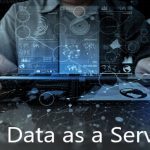Analytics has become an important part of every core function around us. Banks and financial institutions are also understanding the immense value that data driven insights bring in. With much of the data revolving around customer behaviour, analytics gives us key insights into understanding our target audience better. As a result, banks and insurance companies can improve … [Read more...] about 8 ways predictive analytics can help BFSI industry
Big Data
Learn everything you need to know about big data. Find out how companies are using this revolutionary technology and what it means for your business strategy.
Broadband Enabled Health Technologies for Aging in Place
The United States population is aging. In fact, by 2030, the U.S. Census estimates that 20% of the U.S. population will be over the age of 65, that's over 70 million people. We also know that over 75% of older adults, would prefer to remain in their homes, according to a 2018 AARP survey. The need and demand for a new approach to care for the health needs of seniors is … [Read more...] about Broadband Enabled Health Technologies for Aging in Place
Understanding BDaaS and Its Types
The essence of Big Data lies within its definition of deploying high volumes of data, velocity along with the variety of data sets that can become quite difficult for extracting value and managing them. Most of the businesses today have now started gaining insights on how Big Data is going to possess challenges and opportunities for them at the same time. However, the increased … [Read more...] about Understanding BDaaS and Its Types
Why You Should Prioritize Data Transformation Above Other Digital Transformation Initiatives
Chance are you're aiming to invest in a BI and analytics program to capitalize on the big data your company has been acquiring over the years. But before you spend millions on opting for expensive BI programs, take a step back and ask yourself three questions: Do I have data I can trust? Do I understand my data? Do I have a data transformation & data quality … [Read more...] about Why You Should Prioritize Data Transformation Above Other Digital Transformation Initiatives
What Will Future Battery Technology Look Like?
Batteries are a vital part of modern-day life. They provide power and energy for things like phones and remotes, but can also power much bigger things like cars or even airplanes. Innovation has brought them to new levels, but future battery technology will go even further. Batteries will likely face challenges as they advance. However, they are moving in the right direction, … [Read more...] about What Will Future Battery Technology Look Like?
What is big data?
Big data is a term that refers to the massive amount of digital data created and shared every day. Big data can transform how we live, work, and communicate. It can be used to improve everything from public health and urban planning to business and marketing.
Big data is also changing the way we think about privacy and security. The volume, velocity, and variety of big data present challenges and opportunities for organizations and individuals. Regardless, big data is here to stay, and its impact will only continue to grow in the years to come.
What is big data analytics?
Big data analytics is the process of turning large, complex data sets into actionable insights. Businesses use various analytical tools and techniques, including machine learning and statistical analysis, to do this.
Big data analytics can be used to improve decision-making in areas like marketing, operations, and customer service. It can also be used to identify new business opportunities and optimize existing processes. With the help of big data analysis, businesses can gain a competitive edge by using their data better.
Want to learn more about big data? Datafloq has courses available. Contact us to get started.
When was big data introduced?
The term big data was coined in the 1990s, with some giving credit to John Mashey for popularizing the term. However, the concept of big data has been around for much longer.
Where does big data come from?
In the early days of computing, scientists and businesses began to realize that the amount of data being generated was increasing exponentially. As a result, they began to develop new methods for storing and processing data.
Over time, these methods have become increasingly sophisticated and have played a key role in enabling businesses to make sense of vast amounts of information. Today, big data is used in various industries, from retail to healthcare, and its importance is only likely to grow in the years to come.
What are examples of big data?
One of the most common examples of big data is social media data. With over 2 billion active users, Facebook generates a huge amount of data every day. This includes information on user interactions, posts, and even location data. Analyzing this data can help companies better understand their customers and target their marketing efforts.
Another example of big data is GPS signals. These signals are constantly being generated by devices like cell phones and fitness trackers. When combined with other data sets, GPS signals can be used to provide insights into everything from traffic patterns to human behavior. Finally, weather patterns are another type of big data set. By tracking these patterns over time, scientists can better understand the impact of climate change and develop strategies for mitigating its effects.
How do companies use big data?
Companies use big data in marketing, product development, and customer service. By analyzing large data sets, businesses can identify patterns and trends that would be otherwise difficult to spot. For example, a company might use big data to track customer behavior patterns to improve its marketing efforts.
Alternatively, a company might use big data to improve its products by identifying areas where customers are most likely to experience problems. For instance, big data can be used to improve customer service by finding pain points in the customer journey. Ultimately, big data provides companies with a valuable tool for gaining insights into their business operations.






